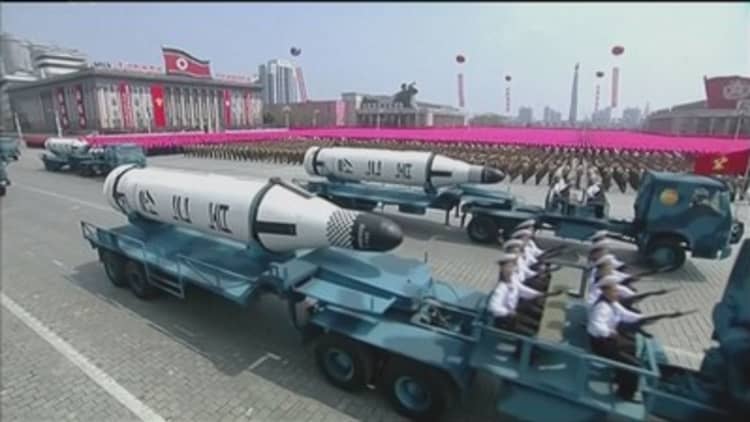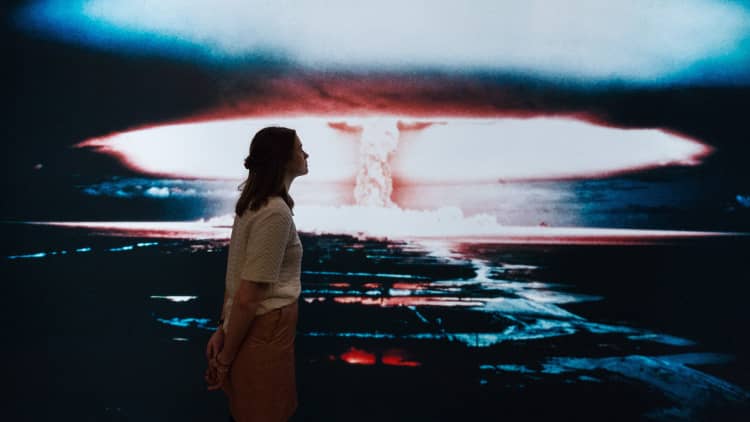
China's Foreign Ministry has expressed what it called "grave concern and opposition" to North Korea's latest missile launch in an unusual rebuke of its neighbor and ally.
Ministry spokesman Geng Shuang said the country hoped "all parties would act cautiously to preserve peace and stability," Reuters reported on Wednesday morning.
The ministry's spokesman added that China would continue to uphold peace and stability on the Korean Peninsula and would work for "settlement on the North Korea nuclear issue."
The public comments come after the isolated Communist state of North Korea launched yet another intercontinental ballistic missile, which it claimed was capable of reaching the U.S. mainland. The missile, the Hwasong-15, was ordered by leader Kim Jong Un and is the country's the most powerful missile so far, according to a state televised broadcast.
There are widespread fears that North Korea is in the latter stages of developing nuclear warheads that could be attached to its ballistic missiles and aimed at the U.S. and its allies.
Although North Korea claims to have already developed and successfully tested such weapons, it's hard to independently verify what stage of the process the regime has reached as the regime is so closed and secretive.

The comments from China's Foreign Ministry are surprising as China has traditionally been one of North Korea's few allies and is the country's largest trading partner. It has shown signs of late that it is growing weary of North Korea's provocations.
China has not previously revealed how it would react if the U.S. did attack North Korea but a Chinese state-owned newspaper, the Global Times, said in an editorial in August that "if North Korea launches missiles that threaten U.S. soil first and the U.S. retaliates, China will stay neutral."
The paper, which is seen as a mouthpiece for the state, added that if the U.S. and South Korea tried "to overthrow the North Korean regime ... China will prevent them from doing so," Reuters reported.
Alison Evans, deputy head of Asia-Pacific country risk at IHS Markit, said Wednesday that the reaction probably meant that China was likely to continue to press for diplomacy over economic sanctions, which the United Nations, U.S. and Europe and a variety of other nations have already placed on North Korea.
"China will probably continue to press for diplomatic talks, arguing for the suspension of North Korean nuclear device and missile tests in exchange for the suspension of U.S.-South Korean military exercises," Evans said in a note Wednesday.
She said that in a press conference on November 6, Chinese Foreign Minister Hua Chunying had appeared to urge South Korea not to join any regional anti-missile system or to accede to a tripartite agreement with Japan and the United States.
"This was probably to put pressure on South Korea to inch away from the United States and towards China, in return gaining relief from economic retaliatory measures against South Korean firms in China," she said.
"Although it has acted swiftly on the latest UN sanctions, China is unlikely to go so far as to fully implement new sanctions that, in its judgment, would risk substantially undermining the economic well-being or social stability not just of North Korea, but also of the Chinese population near the North Korean border, which relies heavily on such trade," she said.


